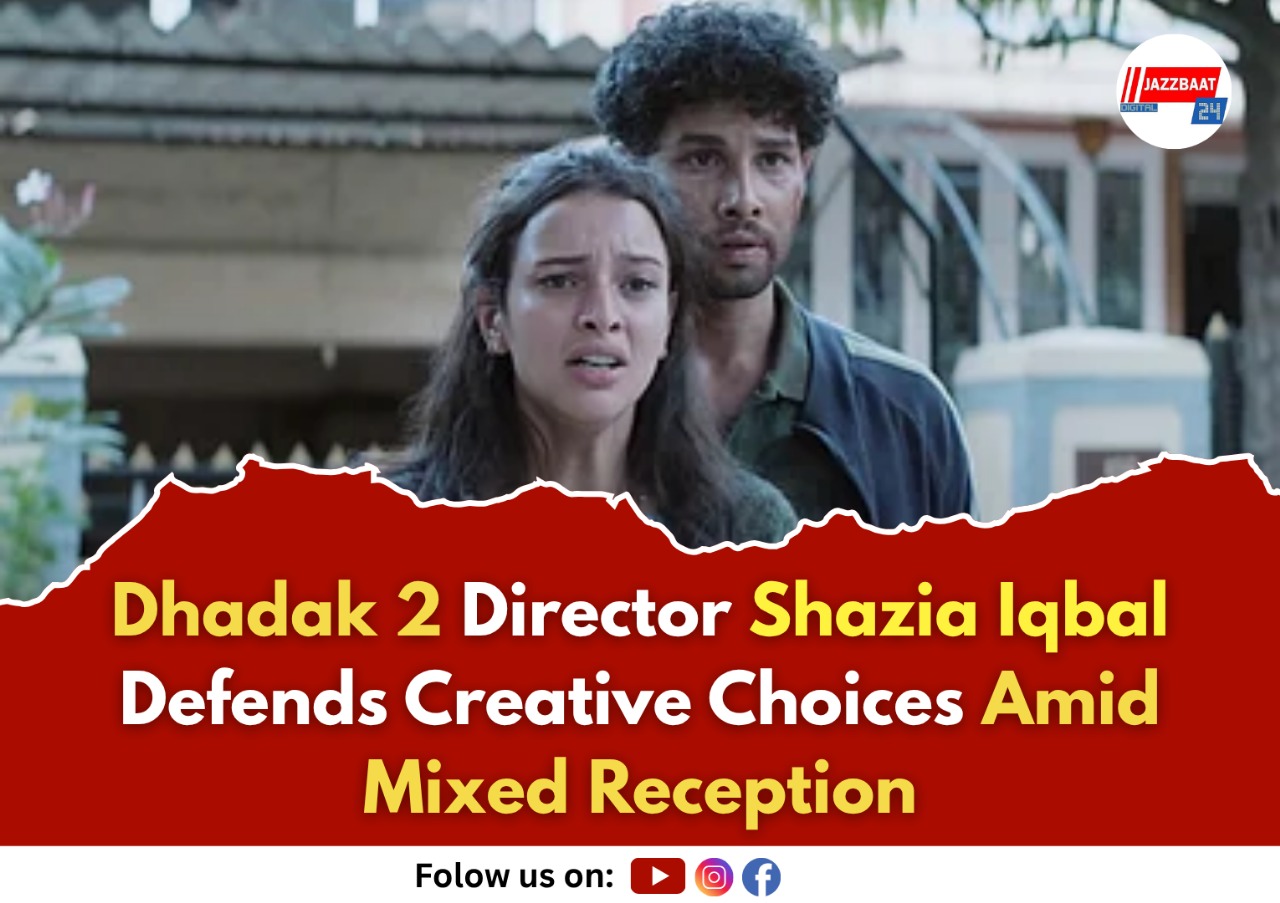
First-time feature director Shazia Iqbal is standing firm behind her artistic decisions for "Dhadak 2," even as the romantic drama faces criticism over casting choices and struggles at the box office. The film, starring Siddhant Chaturvedi and Triptii Dimri, has earned ₹20.55 crore in its first ten days but has sparked debate about representation in mainstream cinema.
Iqbal, a Muslim woman filmmaker making her directorial debut, addressed the controversy surrounding Chaturvedi's tanning for his role as a Dalit law student. "Even if you had not tanned Siddhant, we would have faced criticism," she told The Indian Express. "Then people would have said we did 'Dharma-fication' of the lead actor." The director acknowledged that the decision has drawn flak, particularly because it's a Dharma Productions film, but emphasized that such conversations are necessary.
The film, a remake of the acclaimed Tamil movie "Pariyerum Perumal," tackles caste-based discrimination through the love story of Nilesh and Vidhi. Producer Karan Johar specifically chose Iqbal after watching her sensitive handling of social issues in the short film "Bebaak" (2018). Unlike the original "Dhadak" (2018), which was criticized for glossing over caste prejudices, Iqbal was determined to stay true to the Tamil film's core message.
"Karan wanted us to be true to the soul of Pariyerum Perumal," Iqbal explained. "As someone who belongs to a marginalized community, I knew that if my film is remade, I would not want anyone to deviate from its core theme."
The casting controversy extends beyond the lead actor. Acting coach Saurabh Sachdeva, who worked with both Chaturvedi and Dimri in the film, defended the actress against recent criticism of her film choices. "With Triptii, her choices didn't work well. But she is wonderful," Sachdeva told Hindustan Times. "What happened was that her choices were not right. That is also something an actor needs to learn."
Dimri, who gained critical acclaim in films like "Bulbbul" and "Qala," faced mixed reviews for recent releases before bouncing back with "Dhadak 2." Sachdeva attributed this to the pressures actors face from various stakeholders, including PR teams and managers, all offering conflicting advice.
Despite the challenges, Iqbal sees her breakthrough as significant for underrepresented voices in cinema. "There are so many aspiring filmmakers who don't see enough people representing them in terms of religion, caste, or background," she noted. "The box-office collection is secondary to the opportunity itself."
The film's journey through the Central Board of Film Certification proved emotionally difficult for Iqbal, who felt her values were being questioned. However, she remains committed to making socially relevant mainstream cinema. "I hope I am not tagged as a political filmmaker and not get work. I am more comfortable with being called a socially-relevant filmmaker," she said.
As "Dhadak 2" continues its theatrical run before its expected Netflix debut in September, Iqbal's directorial debut represents both the opportunities and challenges facing diverse voices in mainstream Indian cinema today.